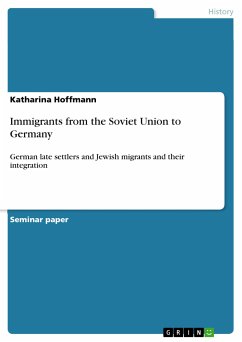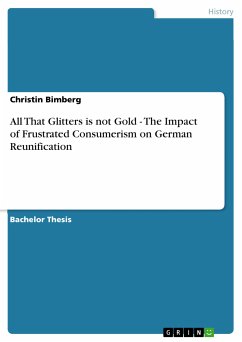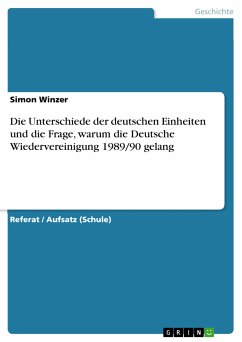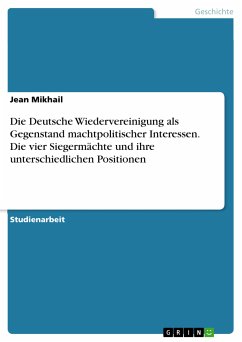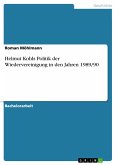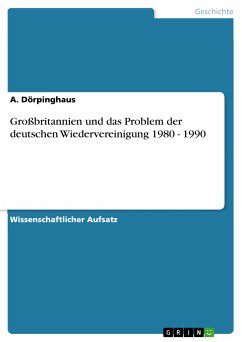Seminar paper from the year 2010 in the subject History of Germany - Postwar Period, Cold War, grade: 3,0, Leiden University (Historisches Institut), course: Migration and integration, language: English, abstract: The fall of the Berlin wall and the reunification soon after was a significant event in the German history and the history of the 20th century in general. But due to the Cold War and the separation of the world into East and West after the end of World War II, there were still brownfields to work on that were left behind the iron curtain. One of these brownfields was the drawing of new German borders that came along with the formation of the Federal Republic of Germany (FRG) and the German Democratic Republic (GDR), both in 1949. Parts of the former German empire were cut off. A large amount of German citizens fled then to the west, others did not and most of them had to stay in Poland or elsewhere further east until 1989. Even more than 50 years after the end of World War II they were still considered as Germans and had therefore the right to live in the mother country. The fact, that they might have been “sovietized” in the meantime did not matter. Another group that came along with these German late settlers was the Soviet Jews. Jews from the Soviet Union were invited to come to East Germany in 1990 shortly before the German reunification and the Federal Republic then held onto this invitation in order to let discriminated and persecuted Jews as refugees into Germany. In the following paper I would like to regard the integration process of these two groups. Due to the fact that their motives to leave home and their situation in the Soviet Union was similar to each other I will regard this group mainly as one and will then focuse on the situation that awaited them in the new Germany. I will work on legal aspects and their public reception aiming to study on the question whether their particular privileged status concerning legal acknowledgement and support had also a particular influence on their assimilation in the German society and their identity. Concerning their identity, the Spätaussiedler and the Soviet Jews are in a different situation then other immigrants in Germany or Europe. Their ethnical identity was their legal reason to migrate, the Spätaussiedler for the fact that they were ethnic Germans and were supposed to be brought ‘home’ and the Soviet Jews due to their discrimination in the SU. For that matter, it would be interesting to see in what way the Jewish congregation and the programs by the German government furthered their integration process.
Bitte wählen Sie Ihr Anliegen aus.
Rechnungen
Retourenschein anfordern
Bestellstatus
Storno

